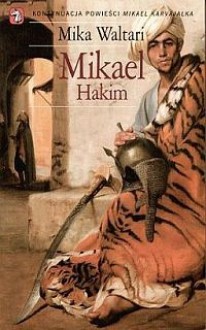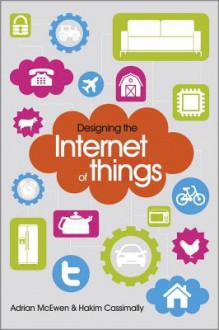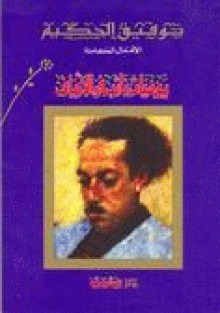كلمات اغنية الجيش المصري حكيم ، كلمات اغنية الجيش المصري حكيم ، كلمات اغنية الجيش المصري حكيم.


Imperium Osmańskie (inaczej: imperium dynastii Osmanów lub imperium ottomańskie) było tureckim państwem położonym na Bliskim Wschodzie i założonym przez jedno z plemion tureckich w zachodniej Anatolii. Od XIV do XX wieku obejmowało Anatolię, południowo-zachodnią część Azji, północną Afrykę oraz południowo-wschodnią Europę. W kręgach dyplomatycznych, aby określić dwór sułtana, a potem również całe państwo tureckie, stosowano termin Wysoka Porta. W XVI i XVII stuleciu Imperium Osmańskie było jednym z najpotężniejszych państw świata pod względem politycznym i militarnym. Wtedy też kraje europejskie poczuły się poważnie zagrożone permanentnym rozwojem imperium na Półwyspie Bałkańskim.
Imperium dynastii Osmanów zostało założone przez Osmana I (1258-1324). W języku arabskim jego imię brzmi Uthman, dlatego też alternatywna nazwa sułtanatu to imperium ottomańskie. W pierwszych wiekach swego istnienia było to państwo dość agresywne i prowadziło politykę skierowaną na bezustanne podboje. W XIII i XIV stuleciu tureckim władcom udało się dokonać podboju całej Anatolii, a także rozpocząć trwające od ponad dwóch wieków okupowanie Półwyspu Bałkańskiego, przez co etapowo podporządkowywali sobie skonfliktowane i słabe państewka feudalne, w których rządy sprawowali chrześcijańscy władcy. Późniejszy rozwój imperium został jednak powstrzymany przez islamskich przywódców religijnych, którzy byli przeciwni wdrażaniu wszelkiego rodzaju wynalazków zapożyczonych z Europy, takich jak kompas czy zegar. Uważali oni bowiem, że rytm dnia muzułmanina powinien być uzależniony i regulowany przez cykl modlitw. Porażka w bitwie pod Wiedniem w dniu 12 września 1683 roku dała początek wypieraniu Turków z terenów Europy.
 Celebrating nonfiction reading and telling the stories of science is a very good idea, and the short selections in this book are good choices. The stories are biographical -- very little story-telling time is spent on the math and science, but that's understandable and makes sense. I'm a little confused as to what age these are aimed at. Early on, the author explains several basic concepts, like the Pythagorean theorem and some basic history notes with great pains, so I assumed it's aimed at young readers. But later on, the author clearly assumes that the reader knows not only who Columbus was and when he sailed the ocean blue (fair enough), but also that Newton invented calculus, which seems odd to me. The tone of this assumption can sound really condescending and off-putting if the kid who's reading doesn't know that.
Celebrating nonfiction reading and telling the stories of science is a very good idea, and the short selections in this book are good choices. The stories are biographical -- very little story-telling time is spent on the math and science, but that's understandable and makes sense. I'm a little confused as to what age these are aimed at. Early on, the author explains several basic concepts, like the Pythagorean theorem and some basic history notes with great pains, so I assumed it's aimed at young readers. But later on, the author clearly assumes that the reader knows not only who Columbus was and when he sailed the ocean blue (fair enough), but also that Newton invented calculus, which seems odd to me. The tone of this assumption can sound really condescending and off-putting if the kid who's reading doesn't know that.
Let me start this review with a question: “is using a mobile device the perfect way to create an Internet of Things appliance?” (Answer at the end of this review).
When The Internet of Things theme first started to come up in the news, the first thing I thought was, I want to know what my microwave has to say to my flip-flops... what’s at stake here is something entirely different. I’m more concerned about the so-called legitimate application of the technology. Unfortunately there are many legitimate applications that can be used with illegitimate intentions in mind.
I’ve been working in IT for a long time. What I usually see is that those who are most adamant about how wonderful it will be when every device is internet connected are the same people who sell the HW that would be used for the connections. What I see all the time is that the actual value of the implementation is not anything remotely close to what is promised, and that when the novelty wears off, or a system gets hacked, the internet feature will be switched off. Then it will just be more electronic waste to fill up our homes.
Another catch is that the reliability of the internet connected device will be probably poor and then the microwave will stop working. Consequence: the people who paid will not be happy. And they’ll also not be happy about having to repair the 700 euro freezer when its electronic package fails. That’s a given. On top of that, to lower the cost of the embedded devices, the interfaces will be made as cheaply as possible. I don’t see how this can be addressed satisfactorily. Food for thought.
As far as I’m concerned the key factor in terms of Internet of Things adoption relies on Security. In the past, technology has lagged on issues such as networking. For the Internet of Things to really take off we need everything to be cutting edge. Vendors are beginning to connect everything, from remote conditioning to phone apps. It goes without saying that with every new connection, there is a possible new entry point security-wise. If the issue is not addressed properly, all hell will break loose then…
Getting back to the book at hand, the authors give us a very thorough analysis of the field. Starting with the Arduino, and the Raspberry Pi, McEwen and Cassimally also established a very interesting comparison between the two industry-wise. I’m more of a Raspberry Pi fan, because the latter is really a computer that can run a real operating system, and communicate with keyboard and mouse, talk to the internet, and drive a TV/monitor with high-resolution graphics. The Arduino instead has a fraction of the raw processing power, memory, and storage required for it to run a modern operating system. Nevertheless it doesn’t make sense to say that one is better than the other. It all depends on what we want to use it for. Although the specifications of the Raspberry pi are in general better than even the top Arduino, we can’t judge them as strictly better without considering what the devices are for. I’ve built a few home projects using the Raspberry Pi, and I’m very partial to it, but that’s just me (the Arduino has a very specific way to do things, whereas the Raspberry Pi presents us with a clean canvas, giving us choices for operating systems and programming languages; that’s why I prefer the Raspberry Pi over the Arduino).
I’d have liked to have seen in the book a technical discussion in terms of the specific protocols that we need to implement the Internet of Things (eg, MQTT - a protocol for collecting device data and communicating it to servers, XMPP - a protocol best for connecting devices to people, a special case of the D2S pattern, since people are connected to the servers, DDS - a fast bus for integrating intelligent machines, and AMQP - a queuing system designed to connect servers to each other). It’d have given a more technical perspective of what lies ahead (vide my review of the Adam Greenfield book to understand the work we still have ahead of us to get there).
I strongly believe I’ll be able to see, in my lifetime, the full power of The Internet of Things. As stated in the book at hand:
“I can’t understand why teddy bears did not have wifi before. A bear without wifi is barely alive, a semi-bear”.
Answer: No. The temptation is always to fall back on the device’s capabilities as a phone, at which point I’m really just creating an “app” for the device rather than a new “thing”. For that we need embedded systems (Arduinos, Raspberry PIs and the likes).
 رواية جميلة من توفيق الحكيم تبين الواقع الاليم الذي يعيشه المواطن الغلبان فى الارياف وده كان عام 1937 لكن انا متأكد انه موجود حتى الان , واقع اليم من فساد وعفن ومحسوبية ورشاوى وعدم الاهتمام باقل حقوق للمواطن من أجل انتخابات ومصلحة السلطة الحاكمة او المصحلحة الشخصية المتمثلة فى القاضى السريع اللى عنده ميعاد القطر اهم من البنى ادمين والكاتب نفسه شايف الظلم بينفسه ومعملش حاجة شاف ناس مسجونة بدون سبب والمأمور خبأهم فى غرفة العلف ولم يفعل شئ لأنه خايف من النقل للصعيد .
رواية جميلة من توفيق الحكيم تبين الواقع الاليم الذي يعيشه المواطن الغلبان فى الارياف وده كان عام 1937 لكن انا متأكد انه موجود حتى الان , واقع اليم من فساد وعفن ومحسوبية ورشاوى وعدم الاهتمام باقل حقوق للمواطن من أجل انتخابات ومصلحة السلطة الحاكمة او المصحلحة الشخصية المتمثلة فى القاضى السريع اللى عنده ميعاد القطر اهم من البنى ادمين والكاتب نفسه شايف الظلم بينفسه ومعملش حاجة شاف ناس مسجونة بدون سبب والمأمور خبأهم فى غرفة العلف ولم يفعل شئ لأنه خايف من النقل للصعيد .